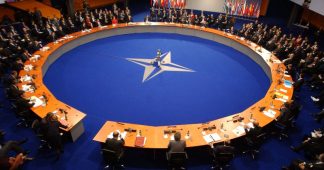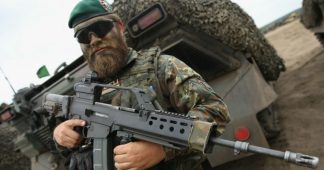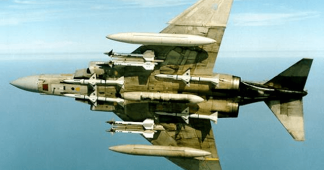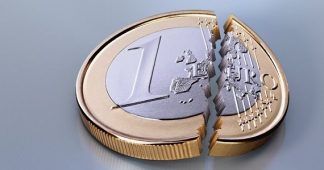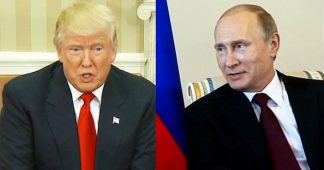By Giulietto Chiesa
In the utter confusion distinguishing the European Union, improvisation is the dominant feature. At the height of the US election campaign, the European Commission President Junker dared to issue a surprising statement: the idea of forming a European army was now on the agenda.
Someone picked up his statement; many wondered where the idea came from, while most of the platoon stayed silent.
The topic is about “Danger: high voltage!” And, moreover, Junker is a prudent man and, by announcing the new agenda, he made sure not to explain what he meant. But the message came from Washington, where candidate Donald Trump had repeatedly said that Europe is worth far less than we believe and that America would have bothered less about the lives of Europeans and more about its own interests.
Junker then launched a counter-message: if by chance, the US reduced its Atlantic claims, Europe will take a few steps aside. So let’s start thinking about whether to defend ourselves. Naturally, a nonsense idea, like anyone should have understood. This is a “threat” that is equivalent to a toy trumpet sound. Europe is entirely entrusted with “American protection” throughout the course of NATO’s existence. Europe never mattered at all in any of NATO’s decisions, limiting itself to obey American commands that have invariably been renewed without even consulting their own European friends. Europe could never do anything without NATO.
Do not even think about it. But the fact is that there are many people in Europe who are still able to do the math and to connect the dots. And when it comes to the issue of its lost sovereignty, it is to be assumed that no real sovereignty will be allowed, by remaining within NATO. Neither tomorrow nor ever. So Junker and the people behind him had to deal with a possible reaction coming from people who care for sovereignty. He did so by releasing a safety valve. You know how things are going: they open a debate on baloney and drag it on for months, maybe for years, leaving the commentators to indulge in the hypothesis, but making sure nothing will change.
Then Trump was elected and his mind changed: not only does NATO remain a key pillar for him to protect Europe, but he will have to increase spending. And the request to European allies has become pressing: pay! That is “raise your defense costs to at least 2% of GDP in each country”. For a struggling Europe, the shot has been strong. Someone got away. Others, such as Italy, immediately bowed down. The Baltic states, for example, have applauded. Junker was left speechless.
But the ‘sovereign people’ of every flag have done the math a second time: they wonder if it would not really be the case to create a European defense spending less money than what Donald Trump is requiring. At a first glance, their probability of success is close to zero. Could it be done? Perhaps it could, it will be enough to stop thinking of Russia as a deadly enemy. But, in reality, this is very unlikely to happen. Yet the Atlantic fear of such an outcome is so great that, in order to prevent such an eventuality, they are preparing all the European forces available for battle.
In recent days, the meeting between Ms. Federica Mogherini and NATO Secretary-General Jens Stoltenberg was followed by an uprising of the numerous cohorts of NATO’s supporters. The “European Leadership Network”, usually silent, has gathered no less than 61 senior military and diplomatic personalities to express a true statement of support for the “deepening of EU-NATO cooperation”, inviting peremptorily “governments to invest a greater Political energy in such an effort.”
No such a thing as a European army, then! The “European Leadership Network” indicates four leading points. 1) Resource. In other words, spending more money. 2) Educate. That is, getting closer to us in every field. 3) Explain. That is, explaining to everyone that being together is better. 4) Be ambitious. In other words, be brave and – if you want to be protected as you must be – try to understand that it is not enough to cooperate passively. It also requires enthusiasm, even if sometimes you may run the risk of exaggerating.
The depth of the ELN document has certainly required many joint efforts. Among the participants and signatories are a former NATO Secretary-General (Willy Claes); a former deputy commander of allied forces (Gen. Sir John McColl); ten former Foreign Ministers (including Massimo D’Alema); and seven former Defense Ministers (including Admiral Giampaolo di Paola) …
We then assume that the debate around a “European army” has definitely been cut off. It is not known if Junker was informed of the event.
